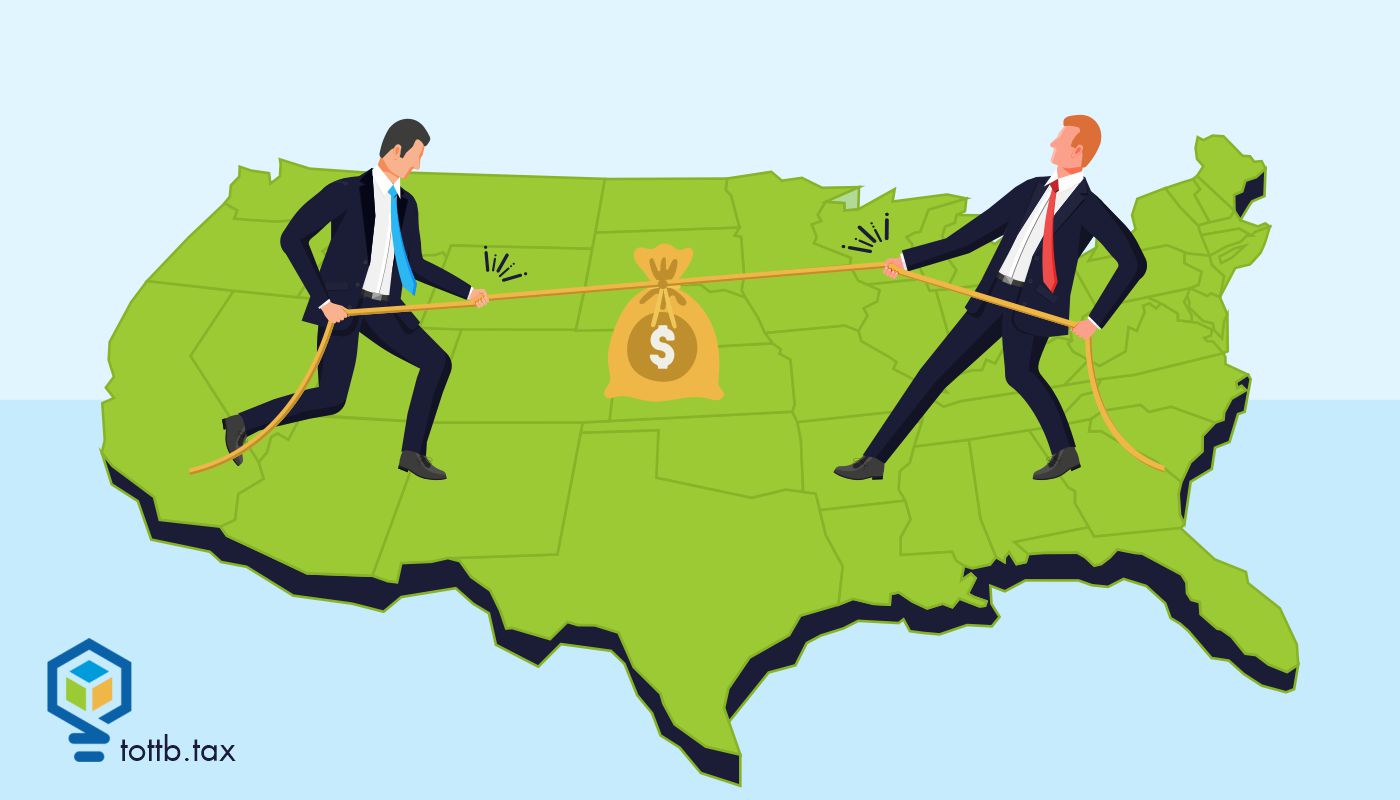CURRENT EDITION

Contracts, Signing Bonuses, and the Substantial Presence Test
In tighter job markets, recruits are often offered signing bonuses (and sometimes moving expenses) to join a firm. Sometimes construction workers temporarily relocate to jobs in other states while they are employed by the company that hired them in their home state. This article reviews some of the foundational tax concepts to consider when evaluating sourcing of income for state tax purposes.
READ MORESide Hustles and Tax Tussles: Tax in the Gig and Share Economy Part One
I can recall looking for a part time job in local newspapers when I was in high school. Sometimes a friend and I would ride around with our $2.29 per gallon gas looking for places that were hiring. Facebook was gaining popularity but not for job posting. So, searching for jobs on my phone via an app was unimaginable. Advances in technology have changed the way that we do things in the world. Everything an individual needs to find a job is right at their fingertips. There are more opportunities to find gigs and be your own boss if that’s what one desires. There’s no question that the way people find ways to earn income has changed. What has not changed is the fact that the IRS wants their share of the income earned. But how do we apply the tax code to these new ways that taxpayers are earning money? We are going to break that down in this three-part series. Whether your client is doing odd jobs on an app like TaskRabbit, driving for Lyft, renting out their home or car, you will know how to guide them. This is what we are going to cover today with a focus on rideshare, delivery, and other service gigs.
Read MoreBuilding Your Firm’s Succession Plan from Within
One day, you won’t want to work anymore, at least not at your current firm. How do you pass on your firm for the best chances of success for everyone? That day when you step out the door for the last time may still seem far off, but when it comes – and it will – you’ll be thankful for an orderly departure. That many accounting firms never make it to a second generation indicates that a lot goes into successful succession plans: impressions of senior staff; the bottom line on your firm’s value and future; and, trickiest of all, just admitting that you need a succession plan. Hammer out details beforehand, especially if you, rather than merging your firm into another or selling your firm, want to groom your firm’s next leaders from within. How and when to start?
Read MoreInnovative Marketing Trends in 2024
As the accounting industry progresses, staying up-to-date with the latest marketing trends is crucial for us accountants as we aim to attract and retain clients. The marketing landscape is witnessing a significant transformation through major technological advances and continuous changes in consumer purchase behavior, affecting how we attract clients as accountants and business owners. Therefore, to thrive in this dynamic environment, as accountants, we must embrace these innovative marketing strategies that resonate with modern clients. In this article, I'll discuss ten groundbreaking marketing techniques and how you can use them in your firm's marketing strategy.
Read MoreCharitable Contributions From Your IRA: Tips and Traps
A really neat thing happens when you turn 70 and ½. Your IRAs essentially turn into donor advised funds if you don’t need all the money in them to make ends meet. Rather than withdraw money from your IRA to make charitable contributions, you can make them out of the IRA. So instead of an itemized deduction, you get an exclusion from adjusted gross income. For some people this might be a wash, but for most it probably isn’t. Besides the possibility of not being over the standard deduction threshold, there are a host of computations and thresholds that involve AGI. There are some things you need to watch out for, but first let’s go over the basics.
Read MoreSegmenting Your Prospects: A Targeted Approach to Business Development
In the accounting field, where client relationships and personalized service are paramount, understanding and segmenting your client base must be a priority. As the accounting landscape evolves and clients diversify, a tailored approach to client segmentation becomes indispensable. Clients are no longer interested in a one-size-fits-all approach to sales and marketing. Therefore, as an accountant and a firm owner, you must adopt a targeted approach tailored to different customer segments' unique needs and characteristics. In this article, I will delve into the importance of client segmentation within accounting firms and provide insights into implementing this strategy so you can drive growth and enhance your client satisfaction.
Read More10 Ways CTPs Can Use the New Adobe AI Assistant to Analyze PDFs
Launched as a beta in February 2024, the Adobe AI Assistant is a generative AI-powered conversational engine feature within Adobe Acrobat. The app enables you to “chat” with PDF files in natural language and unlock new levels of document productivity. The AI Assistant can be likened to a knowledgeable librarian for digital documents. Just as a librarian assists you in finding the right books, navigating through complex archives, and answering detailed inquiries about content, the AI Assistant helps users navigate, understand, and extract key information from PDF documents. It provides summaries, clarifies content through answers and suggestions, and links to relevant sections, all designed to make your interaction with digital documents as enriching and efficient as a visit to a well-staffed library.
Read MoreWhat Clients Should Know About Innocent Spouse Relief
Some clients marry into tax trouble – and then have no clue how to get out. Others are on the cusp of a separation or divorce and want the uncoupling (at least in the eyes of tax authorities) to start ASAP. Few clients who need the IRS tool called “innocent spouse relief” to unshackle themselves from a spouse’s tax mess (either one that spouse brought to the marriage or one they racked up later) seem to know about it. Here’s what to tell such a client about what this relief does and does not cover and what your client will have to prove before they can qualify – as well as how difficult this relief can be to get.
Read MoreTAX COURT ROUNDUP – June 2024
No dramatic developments this month, but some technical inputs worth noting. A good practitioner is always learning; it's so much better to learn from other peoples' mistakes than one's own.
Read MoreNOT A MEMBER YET?

SUBSCRIBE TO GET ALL OF OUR
GREAT ARTICLES AND RESOURCES!
CURRENT EDITION

Contracts, Signing Bonuses, and the Substantial Presence Test
In tighter job markets, recruits are often offered signing bonuses (and sometimes moving expenses) to join a firm. Sometimes construction workers temporarily relocate to jobs in other states while they are employed by the company that hired them in their home state. This article reviews some of the foundational tax concepts to consider when evaluating sourcing of income for state tax purposes.

Help Clients Rebuild Tax Records After Disaster
Tax pros help clients with a lot of catastrophes: wrangles with tax authorities, paltry nest eggs, more wrangles with tax authorities. More frequently, your clients might face a more tangible and cinematic disaster. These days, there’s always a storm comin’. Swept away in that destruction, for many people, are physical tax and financial records. A few precautions could have prevented such loss and made life at least a bit easier for victims. Here’s how to help clients head off trouble – and recover after it hits.

George M. Cohan’s Tax Triumph: The Rise and Erosion of the Cohan Rule
The Cohan rule is named for George M. Cohan. George Michael Cohan (1878 – 1942) was a theatrical producer. In the decade before World War I, he was called the “man who owned Broadway” and is considered the father of American musical comedy. In 1940 he was awarded the Congressional Gold Medal for his contribution to morale during World War I with his songs “You’re a Grand Old Flag” and “Over There,” the first time the medal was awarded to someone in an artistic field. But his most enduring legacy may be the tax rule that shared its name.









